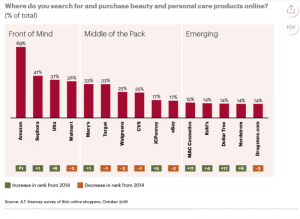— September 12, 2017

Pixabay
Discoverability is a vital piece of your web presence, and as SEO tactics continue to change, you don’t want your website falling behind. If you’re using the same search engine optimization strategies that you were implementing two years ago, you’re giving your competitors the edge to take the lead.
61% of marketers say that SEO for organic search is their top inbound marketing priority, and this focus is for good reason. Over six billion queries are made through searches engines every day.
There are development, content, and design choices that have great impacts on search engine optimization, and none of these three areas can be ignored. Here’s what you need to know about SEO to keep up in today’s web environment.
What’s new in SEO?
Voice Search
There’s no surprise about developing your website for its mobile users. Responsiveness has been essential for years, and mobile devices now account for the majority of the time spent online. But mobile search is evolving into a voice dominated practice.
Ten years ago, you’d type keywords into a search engine—for example, “football schedule Philadelphia Eagles September 2017.” Now, you’d simply pick up your phone and say, “What time is tomorrow’s Eagles game?” Your content strategy needs to follow suit.
Years ago, you’d optimize for the keywords one might use, ideally using a long-tail keyword to focus on specifics. Now, you need to think in terms of natural conversation. Your content needs to be written well, using phrases someone might actually say. Those long-tail keywords are still essential, but their phrasing is as important as ever.
Think about an online shopper who knows exactly what she’s looking for. With her in mind, the phrasing of your product descriptions on your website needs to be as detailed as possible, including all the specifics one might mention, and your description needs to be written in natural language pattern. Choppy content will not sell products in the era of voice search.
Voice search had an error rate of 20% in 2012, but the technology has become increasingly able to detect unique voices, accents, and inflections. By 2016, the error rate was down to 8%, and it’s only gotten better from there.
Artificial Intelligence (AI)
There are two ways to discuss AI when thinking about SEO: AI used by search engines and AI used by website developers.
The major search engines utilize machine learning to enable analysis of the predicted potential of websites from the data available. This is where programs like Google’s RankBrain come in, taking the ranking of websites out of human hands and into a computer’s metaphorical ones. Search bots scan websites, analyzing countless factors according to their complex algorithms, to determine the placement on search engine result pages (SERPs).
On the opposite side of things, AI for SEO isn’t at the fingertips of every business owner yet, but this is only a matter of time. Artificial Intelligence will soon be able to analyze the best website structure for your industry, direct users to exactly the right materials on your website, and potentially even create the content that is crafted for your unique audience. Human programmers, designers, and communications experts will see a shift in their work from start-to-finish creators to simply final editors and manipulators—with all the best building blocks already in place.
For example, if your ecommerce shop has a target audience of pet owners, AI will enable you to build a website that is data driven, based on the behaviors of dog, cat, bird, and lizard owners already shopping for their pet food and other supplies online. Human analysis can already do much of this today, but artificial intelligence will make this process faster, easier, and more accessible.
Data informed web development will enhance the user experience, which will enable your website to climb in the search rankings.
Security
Even well built, intuitive, content-rich websites are only as good as their security. The old “stranger danger” line is true in many situations, and the Internet can most definitely be one of them.
In 2017, Google’s Chrome Browser started warning users of websites without a SSL certificate, because these websites are less secure. This announcement came three years after they broadcasted that SSL certificates are an SEO ranking factor.
Banking and ecommerce websites have been thinking about security for a long time, but these extra security measures are now important for all websites, from business websites to author marketing pages.
Trust has to be earned, and taking the extra step to ensure your website’s security proves to your human and non-human audience alike that you are a credible, reliable source.
Conclusion
There’s so much to discuss about SEO, from the power of Google AMP to the necessity of site architecture mapping, avoiding Flash, compressing your images for a faster load time, and so much more. However, as search engine optimization evolves, it’s essential that your website continues to evolve with it.
Your outdated search engine optimization tactics will do little to help your business.
Digital & Social Articles on Business 2 Community
(98)
Report Post





